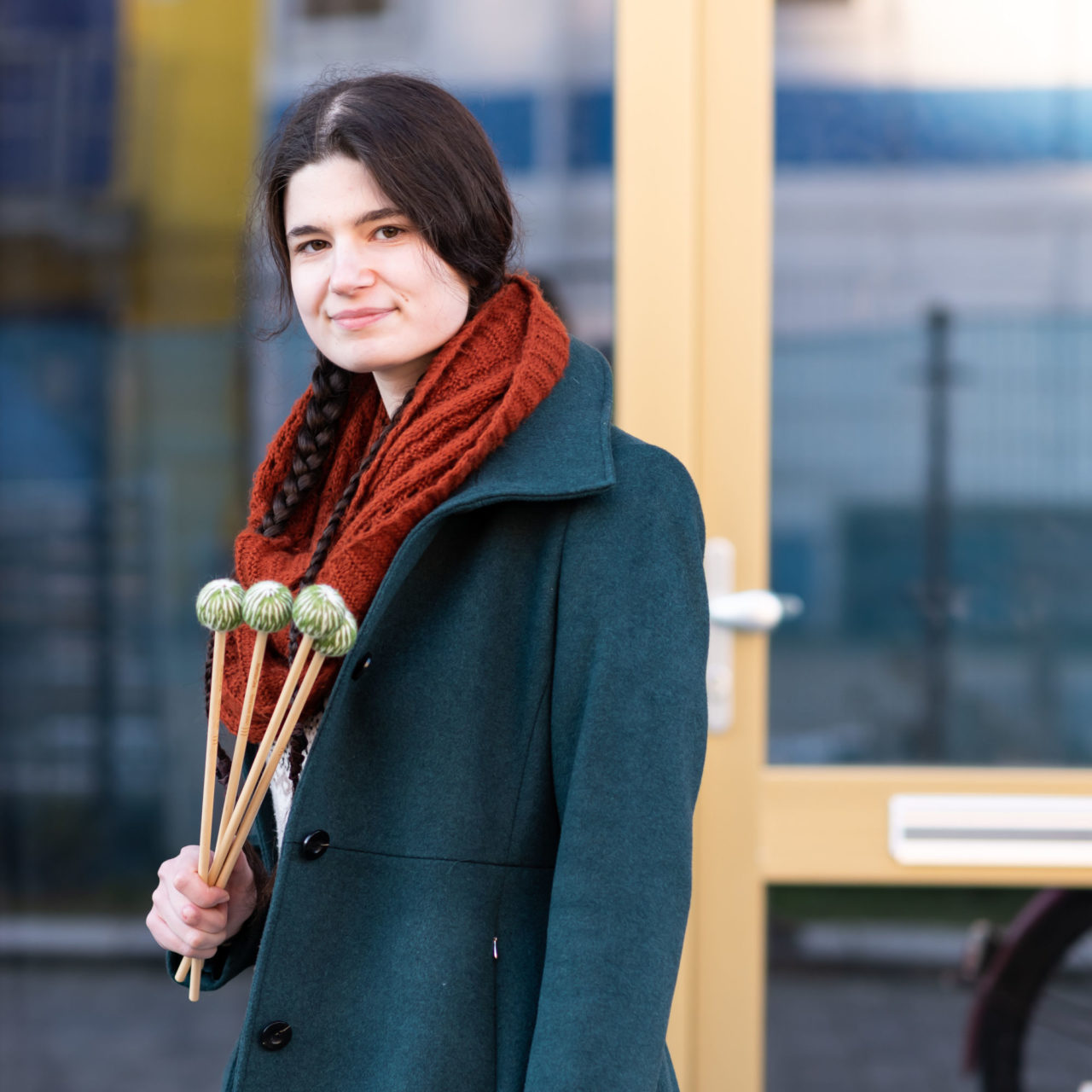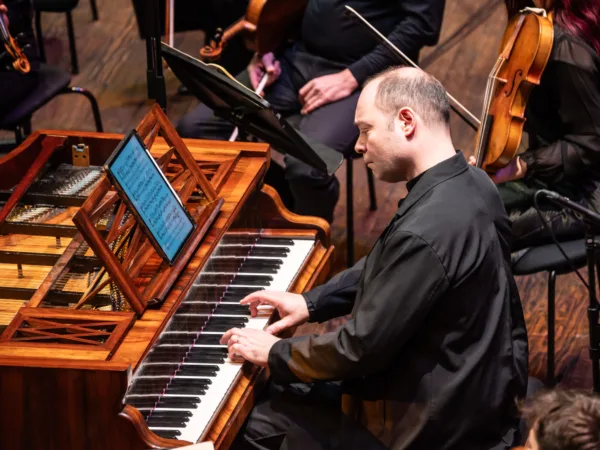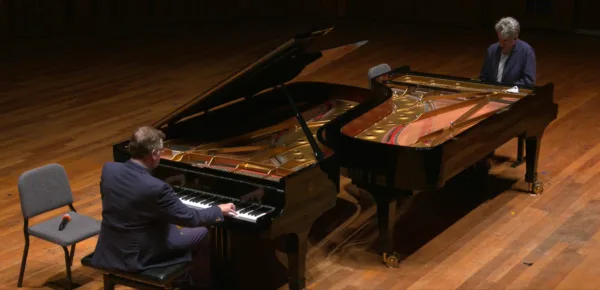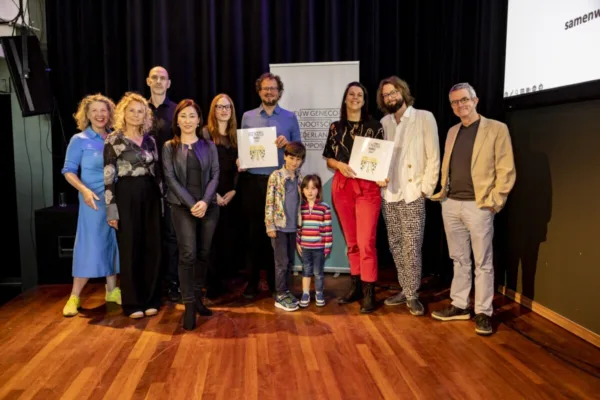Lotje - 'PM forms a small, very tight group'
8 February 2021
As a student in the Practicum Musicae (PM) programme, Lotje combines her studies in Art History at Leiden University with the Classical Music Percussion programme at the Royal Conservatoire. Here she describes how her study programme links two worlds.
After obtaining a Bachelor’s degree in Egyptology, Lotje decided she was not done with studying. She explored the possibilities of combining her second degree programme in Art History with her real passion of playing percussion. The solution was the PM programme, in which she studies at both Leiden University and the Royal Conservatoire. ‘Most people start by taking lessons in percussion and then join orchestras, but I took the opposite direction. Since I was 7 years old, I have played piano. During a summer course I became enchanted by the orchestra, and I was disappointed because as a pianist you are not able to have a standard position in an orchestra. However later, an other participant of the course asked whether I would like to join a youth orchestra as a percussionist. After joining in a few rehearsals, that were also an audition for me, I was invited to stay on.
When I started studying in Leiden, I wanted to join a student orchestra, also as a percussionist. The orchestra had no timpanist and I was asked to play that instrument. Things snowballed from there. I received more and more requests to perform in project orchestras. It became increasingly clear how important a part music plays in my life. I auditioned in The Hague and was admitted to the Conservatoire, where I now specialise in timpani and marimba. As a timpanist you provide a fundamental basis to the music. You don’t play a solo or a melody, but give the music a feeling or mood. I therefore always try to identify what suits the music and what I want to say.’
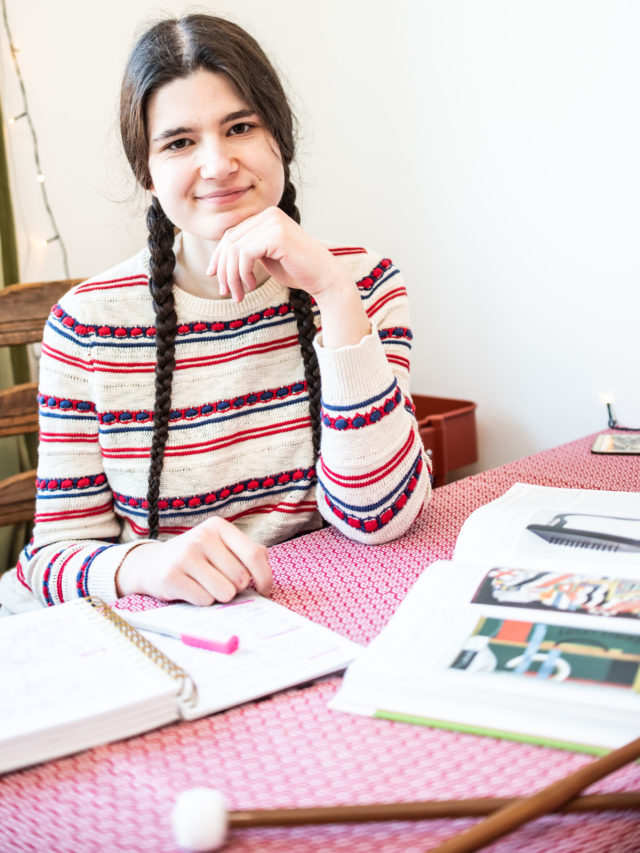
Combination of two worlds
‘This PM programme, which combines academic studies and a programme at the Conservatoire, is unique in the Netherlands. That gives me the motivation to devote all my energy to it. Having been given this opportunity, I am determined to grab it with both hands. PM demands a lot of discipline, you have to be committed and able to plan properly. But making music gives me so much pleasure that it never feels like a burden to me. Music takes me out of myself and my studies in Art History also go even better as a result.’
Lotje observes that her studies also complement each other. ‘I followed a course in modern art in the Art History programme last year: it was about Kandinsky, and his correspondence with Schönberg was mentioned. A week later my teacher of music history at the Conservatoire covered precisely the same subject. I then studied the subject in more depth for a thesis. All of the literature I read was written from the perspective of either an art historian or a music theoretician. That gave me the idea that I could add something genuinely new because of my deep knowledge of both worlds. I would really like to continue combining these two disciplines.’
Concerts and networks
PM students can join in projects organised by the various departments in the Conservatoire, as well as projects specifically for PM students. ‘I had only been involved in the PM programme for a short time when I was asked to play Beethoven 4 with the Early Music department. Also, there are a lot of possibilities to play together with other students, and of course with the PM orchestra. I also play with a number of orchestras outside the school. I try to play as often as possible: people need to know you if you want to be asked to perform as a percussionist. And that applies not only to musicians: a network is also very important for art historians. It is always important to show how dedicated you are.’
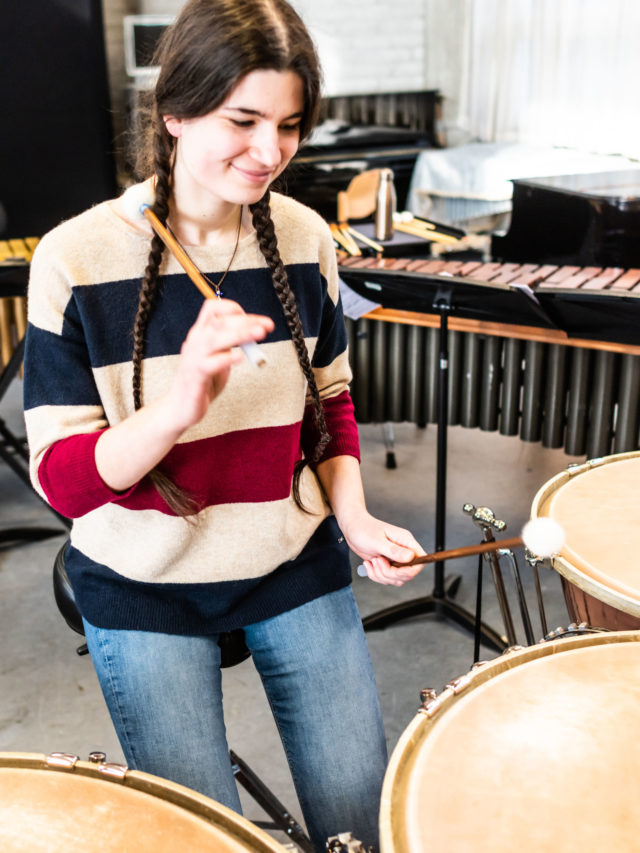
Close-knit community
The PM community is a diverse group, with students who play a variety of instruments and study a wide range of subjects in Leiden. ‘The Conservatoire in general is a very close-knit community, and PM forms a small, very tight group within it. Everyone fits in, whether they are introvert or extrovert. And because through PM you already know a lot of people who play different instruments, it is easy to form ensembles.
Playing percussion has also forced me to come out of my shell. You are always audible, so you have to go full out. However, you don’t need enormous self-confidence for this study programme, I’m not always confident myself. But motivation and perseverance are essential. At the Conservatoire I have learned that I can do more than I think I can. It is not about whether you can or can’t do something. You know you can. You just have to find the best way of doing it.’
Interested? Go to our 'Apply now' pages for more information about the Royal Conservatoire, Practicum Musicae and the Classical Music department.

